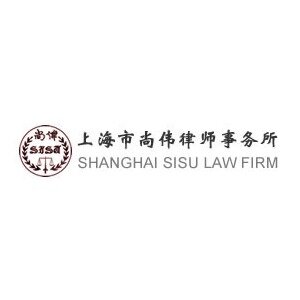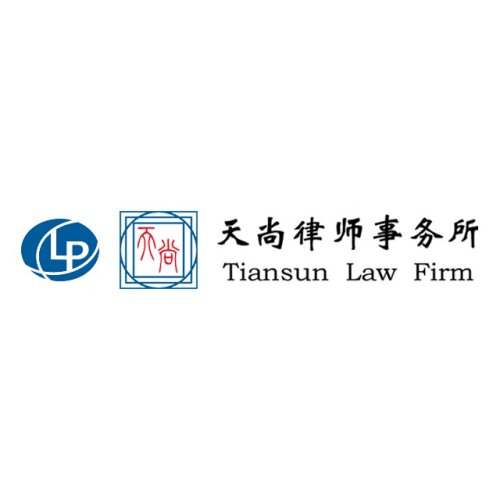Best Retirement Lawyers in Shanghai
Share your needs with us, get contacted by law firms.
Free. Takes 2 min.
List of the best lawyers in Shanghai, China
About Retirement Law in Shanghai, China
Retirement law in Shanghai is governed by a combination of national and local regulations designed to provide financial security to individuals who have ceased working due to age. In China, the retirement age varies depending on gender and occupation, with current policies setting it at 60 for men, 55 for female civil servants, and 50 for female workers. Shanghai, like other major cities, follows these national guidelines but also implements specific measures to address its unique demographic and economic environment. The city's retirement policies are intertwined with various aspects of social insurance, pension schemes, and healthcare benefits aimed at ensuring a stable post-retirement life for its residents.
Why You May Need a Lawyer
There are several situations where individuals may require legal assistance when dealing with retirement matters in Shanghai. Legal complexities often arise during the transition to retirement, especially concerning eligibility, pension calculations, and benefits. A lawyer can help interpret and navigate these regulations, especially when there are disputes or inconsistencies regarding pension entitlements or social insurance contributions. Additionally, expatriates or foreigners retiring in Shanghai may face distinct challenges related to residency status, taxation, and integration into local retirement systems, which can necessitate legal guidance.
Local Laws Overview
Shanghai's retirement laws are crafted to work in tandem with the broader Chinese national policies on social insurance and pension systems. Key local laws include regulations on mandatory employee contributions to pension funds, employer obligations for future retirees, and specific rules about pension fund management. Moreover, Shanghai offers supplementary retirement benefits for certain sectors, reflecting the city's economic priorities and cater to its growing elderly population. The implementation of these laws involves multiple governmental bodies, including the Shanghai Human Resources and Social Security Bureau, which oversees compliance and addresses grievances regarding retirement matters.
Frequently Asked Questions
What is the official retirement age in Shanghai?
In Shanghai, the official retirement age is 60 for men and 50 or 55 for women, depending on their occupation.
How is my pension calculated in Shanghai?
Pensions are calculated based on your average salary, the number of years you have contributed to the pension system, and your location within China. Shanghai uses a formula that includes both a basic pension and a personal account component.
Can foreigners retire in Shanghai?
Yes, foreigners can retire in Shanghai, but they must navigate specific residency and legal criteria, including ensuring they have the right long-term visa status.
What are the main types of financial support available to retirees in Shanghai?
The primary types include the basic State Pension, enterprise annuities, and personal savings. Retirees may also receive healthcare benefits and, in some cases, housing subsidies.
Are there voluntary retirement savings options in Shanghai?
Yes, there are voluntary savings options such as enterprise annuities and private pensions, which can supplement the basic State Pension.
What happens if my employer hasn't contributed to my pension fund correctly?
If discrepancies arise, a lawyer can assist you in filing a complaint with the Shanghai Human Resources and Social Security Bureau to rectify the situation.
Am I eligible for any special retirement incentives or subsidies in Shanghai?
Special incentives or subsidies may be available to individuals working in specific sectors or who have particular financial needs. It's advisable to consult with a legal expert or the local social security bureau for specific details.
Is my pension taxable in Shanghai?
Pensions are generally subject to income tax in China, but specific tax reliefs may apply. Legal advice can help clarify individual tax obligations regarding retirement income.
How can I ensure my medical insurance continues after retirement?
Shanghai's social insurance system provides healthcare benefits that continue post-retirement, though it’s important to check specifics with your employer or independent legal advisor.
What should I do if I plan to retire in another city or country?
If planning to retire elsewhere, check for any agreements between Shanghai and your destination on pension portability. Legal guidance can assist in managing such transitions smoothly.
Additional Resources
For additional support, consider contacting the Shanghai Human Resources and Social Security Bureau for official guidelines on retirement. Non-governmental organizations like senior citizen associations offer resources and community support. Legal aid centers in Shanghai may also provide free or low-cost services to assist with retirement-related legal inquiries.
Next Steps
If you need legal assistance with retirement issues in Shanghai, it's advisable to start by consulting a lawyer experienced in labor and social security law. Prepare all relevant documents related to your work history, pension contributions, and any correspondence regarding your retirement. Schedule a consultation to discuss your case in detail and receive tailored advice based on your circumstances. It's also valuable to remain informed about any legal changes that could affect your retirement plans and consult legal professionals regularly to stay updated.
Lawzana helps you find the best lawyers and law firms in Shanghai through a curated and pre-screened list of qualified legal professionals. Our platform offers rankings and detailed profiles of attorneys and law firms, allowing you to compare based on practice areas, including Retirement, experience, and client feedback.
Each profile includes a description of the firm's areas of practice, client reviews, team members and partners, year of establishment, spoken languages, office locations, contact information, social media presence, and any published articles or resources. Most firms on our platform speak English and are experienced in both local and international legal matters.
Get a quote from top-rated law firms in Shanghai, China — quickly, securely, and without unnecessary hassle.
Disclaimer:
The information provided on this page is for general informational purposes only and does not constitute legal advice. While we strive to ensure the accuracy and relevance of the content, legal information may change over time, and interpretations of the law can vary. You should always consult with a qualified legal professional for advice specific to your situation.
We disclaim all liability for actions taken or not taken based on the content of this page. If you believe any information is incorrect or outdated, please contact us, and we will review and update it where appropriate.

















